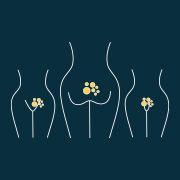Medical Conditions That Increase the Risk of Piles
In This Article
Medical Conditions That Increase the Risk of Piles
Prathibha
Updated on March 17, 2025
Medically verified by Dr. Arya
Fact checked by Dr. Fazeela

Proctology
4 min read
1. Chronic Constipation and Piles
Chronic constipation is one of the leading causes of piles. When stool becomes hard and difficult to pass, it increases the likelihood of straining during bowel movements. This straining and rectal pressure can lead to the development of hemorrhoids over time. Consistently pushing too hard causes the veins in the rectum to swell, leading to the formation of piles.
2. Chronic Diarrhea and Piles
While constipation is a well-known cause, chronic diarrhea can also increase the risk of piles. Frequent bowel movements irritate the rectal and anal area, causing inflammation and swelling. This irritation can weaken the veins and tissues in the rectal region, making hemorrhoids more likely to develop.
3. Obesity and Hemorrhoids
Obesity is another significant risk factor for piles. Excess body weight puts added pressure on the pelvic and rectal regions. This increased pressure can lead to swollen veins, resulting in hemorrhoids. Maintaining a healthy weight through a balanced diet and regular exercise can help reduce the risk of developing piles.
4. Pregnancy and Piles Risk
Pregnancy increases the risk of piles due to hormonal changes and increased pressure on the pelvic blood vessels. As the uterus grows, it presses against the veins in the lower abdomen, causing them to swell. Additionally, hormonal fluctuations can slow digestion, leading to constipation and further increasing the risk of hemorrhoids.
5. Liver Disease and Hemorrhoids
Liver disease, particularly cirrhosis, can contribute to the development of piles. A compromised liver can cause portal hypertension, which increases blood pressure in the veins surrounding the rectum. This elevated pressure may result in the formation of hemorrhoids.
6. Digestive Disorders and Piles
Certain digestive disorders, such as irritable bowel syndrome (IBS) and inflammatory bowel disease (IBD), can heighten the risk of piles. These conditions often cause frequent diarrhea or constipation, both of which can lead to increased rectal pressure and vein swelling. Managing these digestive disorders through medical care and lifestyle changes is crucial to reducing piles risk.
7. Hypertension and Hemorrhoids
Hypertension, or high blood pressure, particularly in the portal vein system, can increase the likelihood of developing piles. Elevated blood pressure affects circulation, leading to congestion and swelling in the rectal veins. Regular monitoring and control of blood pressure can help prevent related complications like hemorrhoids.
 10 min read
10 min readAnal Herpes: Symptoms, Treatment, And Care
 10 min read
10 min readHome Remedies for Herpes: Natural Treatment Options
 10 min read
10 min readIdentifying Herpes Symptoms in Women: A Detailed Guide
Get a Callback Now
8. Genetic Factors and Piles Risk
Genetics play a role in the development of piles. If you have a family history of hemorrhoids, you may be more prone to developing them yourself. Genetic predisposition can affect vein strength and elasticity, making them more susceptible to swelling and irritation.
9. Aging and Reduced Tissue Elasticity
As people age, the tissues supporting the veins in the rectum and anus tend to weaken. This reduction in elasticity increases the risk of vein swelling and hemorrhoid formation. Older adults are particularly vulnerable to piles due to age-related changes and decreased physical activity.
10. Sedentary Lifestyle and Piles
Prolonged sitting, especially on hard surfaces, can increase pressure on the rectal veins, contributing to piles. People with sedentary jobs or those who spend long hours sitting are at a higher risk. Incorporating regular movement and physical activity can mitigate this risk.
Conclusion
Understanding the medical conditions causing piles is crucial for prevention and effective management. For expert guidance on managing piles and other related health conditions, consider consulting with Mykare Health, where specialized care and personalized treatment plans ensure your comfort and well-being.
FAQs
1. What medical conditions increase the risk of developing piles?
Medical conditions that increase the risk of developing piles include chronic constipation, chronic diarrhea, obesity, pregnancy, liver disease, digestive disorders (such as IBD and IBS), and hypertension.
2. Does chronic constipation always lead to piles?
Not always, but chronic constipation significantly increases the risk of developing piles due to frequent straining and rectal pressure.
3. How does obesity contribute to piles?
Obesity adds extra pressure to the rectal veins, increasing the likelihood of vein swelling and hemorrhoid formation.
4. Can liver disease lead to piles?
Yes, liver disease, especially cirrhosis, can cause portal hypertension, leading to increased pressure in the rectal veins and a higher risk of hemorrhoids.
5. Are people with inflammatory bowel disease (IBD) at higher risk for piles?
Yes, people with IBD are at a higher risk due to frequent bowel movements and rectal irritation, which can contribute to hemorrhoid development.
6. Can pregnancy cause permanent hemorrhoids?
In most cases, pregnancy-related hemorrhoids resolve after childbirth. However, some women may experience persistent symptoms requiring treatment.
7. How can I prevent piles if I have a digestive disorder?
Managing your digestive disorder through proper medical care, a high-fiber diet, and staying hydrated can help reduce the risk of piles.
8. Does sitting for long hours cause piles?
Yes, prolonged sitting increases pressure on the rectal veins, which can lead to hemorrhoid formation.
9. Can genetic factors alone cause piles?
While genetics can increase your susceptibility, lifestyle factors like diet and physical activity also play a significant role.
10. Is there a link between hypertension and hemorrhoids?
Yes, hypertension, particularly in the portal vein system, can increase pressure on rectal veins and contribute to the development of piles.
Chronic constipation and piles are closely linked due to increased straining and rectal pressure.
Obesity and hemorrhoids are connected through the added pressure excess weight puts on rectal veins.
Pregnancy increases piles risk because of hormonal changes and pressure from the growing uterus.
Liver disease and hemorrhoids are associated with portal hypertension causing increased vein pressure.
Digestive disorders and piles, particularly conditions like IBD and IBS, increase rectal strain.
Hypertension and hemorrhoids are connected through increased blood pressure in the portal vein system.
Genetic factors and piles risk are significant, especially with a family history of hemorrhoids.
Hemorrhoids and health conditions are closely linked, as various medical issues can increase rectal pressure and cause vein swelling.
Source Links
Piles: Types, Medical Causes, Risk Factors and Treatments - RG Stone Hospital
Lifestyle and Risk Factors in Hemorrhoidal Disease - National Institutes of Health
Causes And Risk Factors Of Piles - RG Hospitals

